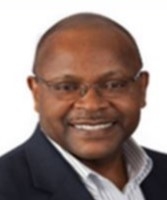Alumni of the Month

Peter Nicolas MATERU
YEAR OF MATRICULATION: 1975
EDUCATION:
Peter Nicolas Materu was born on February 24, 1954 in Uru, Moshi, in Kilimanjaro region and he went through primary and secondary education in schools both in and outside the village well to the level of Advanced-level (Form VI) examinations, which he passed so well. He remembered to have been an exemplary performer in science subjects, particularly in physics and mathematics – subjects which many youths tended to run away from. In 1975, he was admitted at the University of Dar es Salaam’s Faculty of Engineering for the BSc degree programme in engineering, specialising in electrical engineering. He earned his degree award in 1978. In the light of his outstanding academic performance, he was retained by the University as a tutorial assistant, a position that gave him an opportunity for further training to master’s and doctoral qualifications. Training to these levels saw him travel to Manchester in the UK and to Virginia in the US. His successful progression saw him go through University academic ranks from Assistant lecturer (1980-1983), to Lecturer (1983-1988), senior lecturer (1988-1992), associate professor (1992- 1997), and finally full professor (since 1997).
In the meanwhile, Professor Materu served as Dean of the Faculty of Engineering for six years from 1991 to 1997, a period that was critical requiring teamwork yet creative decision-making in the ‘hot moments’ of institutional self-review, transformation and change. He chaired a team in the mid-1990s which, on the administrative side of organisational governance, produced a number of implementable reports such as downsizing administrative staff bulges (with resultant retrenchment) without affecting efficiency and effectiveness. Previously, he had been on a six-member international panel that conducted a first-ever academic audit of the University in 1990/91, setting a principle for regular but well-spaced academic audits for the institution.
After serving also as director of postgraduate studies, Peter Materu joined the World Bank in 2000 as a senior education specialist in the Africa Region division, initially working on the ‘African Virtual University’ project for promoting innovation in higher education through partnerships in university teaching-learning programmes based digital ‘centres of excellence’. He thereafter worked on several other issues such as capacity-building for economics education and research in Africa as well as on quality assurance in higher education in Africa, rising to positions of lead education specialist and sector/practice manager. From early March 2016, Peter was engaged by a Canada-based Mastercard Foundation, within an essentially same theme or field of concern, namely youth education and learning in Africa, or else ‘skilling’ African youth for employability and productivity. It has as its “mission to advance learning and promote financial inclusion for people living in poverty”, the objective being to seek “a world where everyone has the opportunity to learn and prosper.” As Mastercard Foundation’s Chief Programme Officer, Materu has brought with him from his previous World Bank engagement a strategic perspective especially among the Foundation’s team working on education and learning for youths and that on youth livelihoods, more particularly in this case focussing on African youths taking full advantage of engineering and ICT innovations and applications for income earning and financial self-sustainability. But behind Materu’s blissfully long and steady journey is the secret of innovative thinking that he has sought to blend with practical engineering knowledge for the kind and range of skills and applications that could be anticipated to result into youth’s productive initiatives in the different parts of the continent. This is important and urgent, particularly in the light of the truth that youth in virtually all African countries today constitute a bigger proportion of the total national population?who are greatly in need of practical skills and competences, plus in need of occupational orientation to be able to engage fully in productive ventures. Yet, in their current state of unemployment and questionable employability, they are the most vulnerable and a potentially explosive segment in society
He has authored a number of publications, including Design and steady-state analysis of the switched reluctance motor drive (1989); ‘Supporting capacity building for economics education and research in Africa’, with Benno Ndulu & Michael Crawford [in Supporting capacity building in Africa]; Towards innovation in higher education in Africa: The case of the Africa virtual university (2001); Higher education quality assurance in Sub-Saharan Africa: Status, challenges, opportunities and promising practices (2007); and ‘The rise, fall and re-emergence of the University of Ibadan’ (with P. Obanya & P. Rhigetti) [in: P.G. Altbach & J. Salmi, eds. The road to academic excellence: The making of world-class research universities (2011)].
The several organisations in which Professor Peter Materu has had active board membership, chairmanship or project participation, at one time or another, include: General Motors, Dayton, Ohio (USA); the Tanzania Engineering and Manufacturing Development Organisation; Contractors Registration Board, Tanzania; National Radiation Commission, Tanzania; University of Dar es Salaam’s Council; the R&D Commission on Industrial and Energy Research in Tanzania; Commission for Science and Technology (COSTECH); and the Association for the Development of Education in Africa (ADEA). The University of Dar es Salaam is quite ecstatic about his mission and his achievements.

